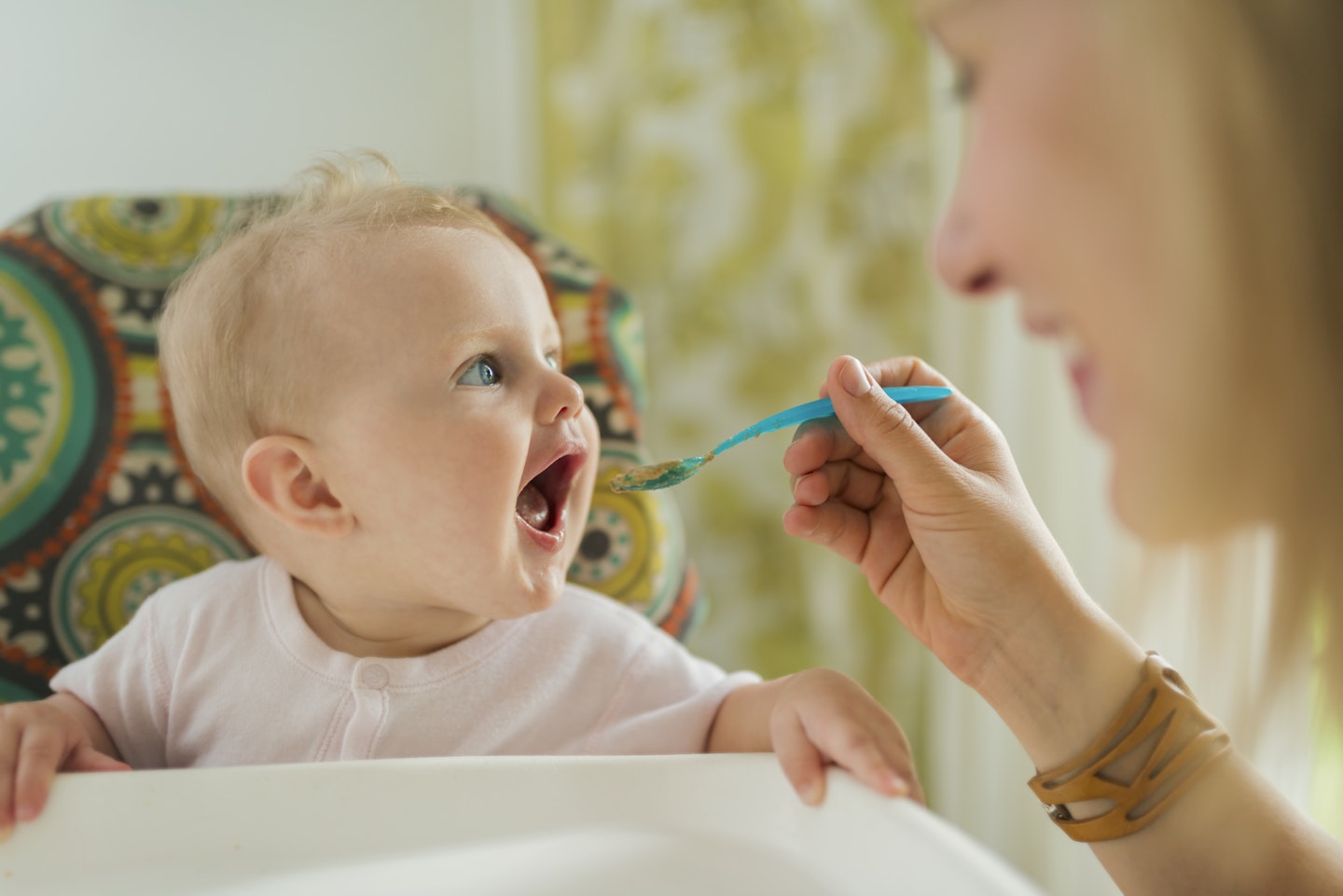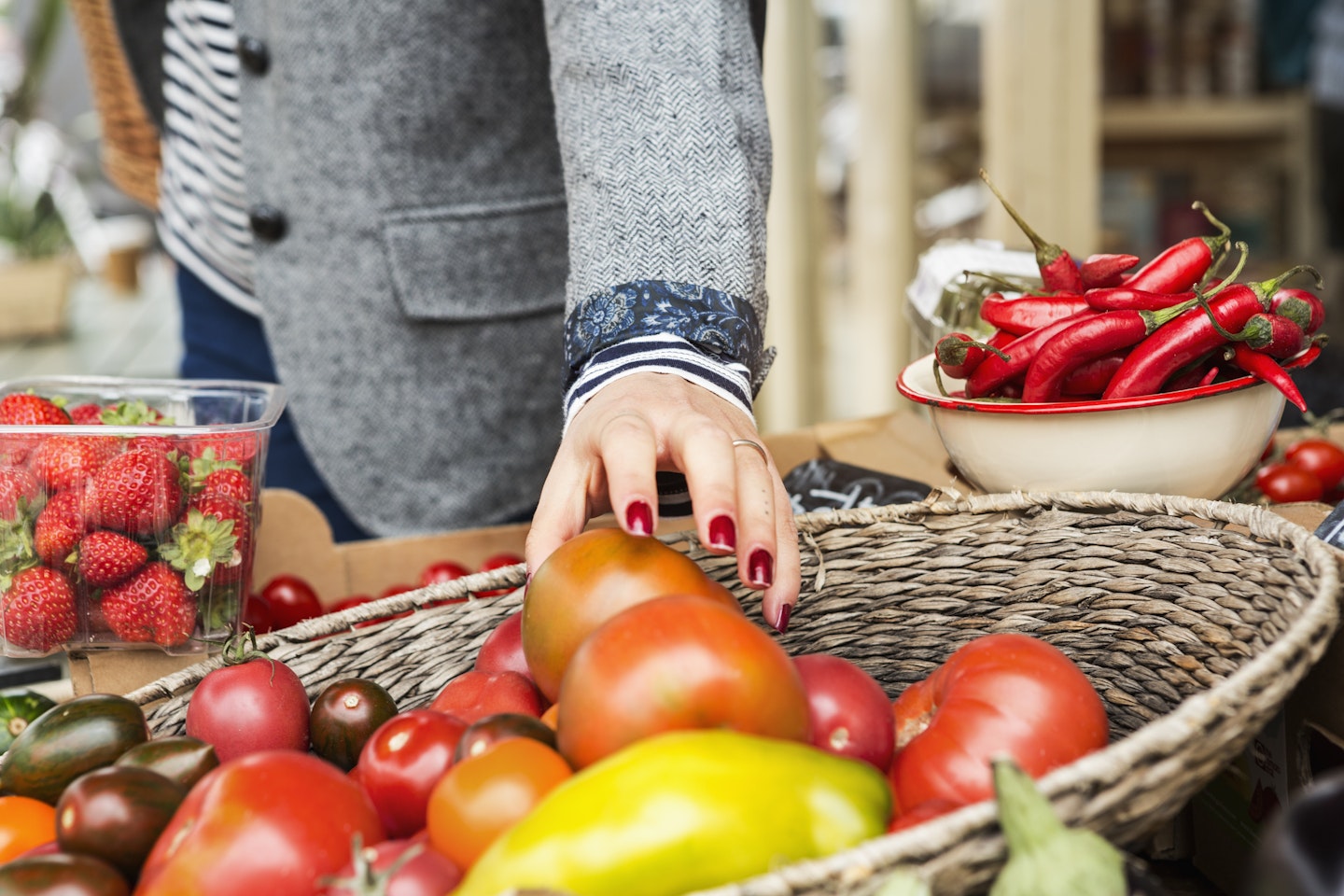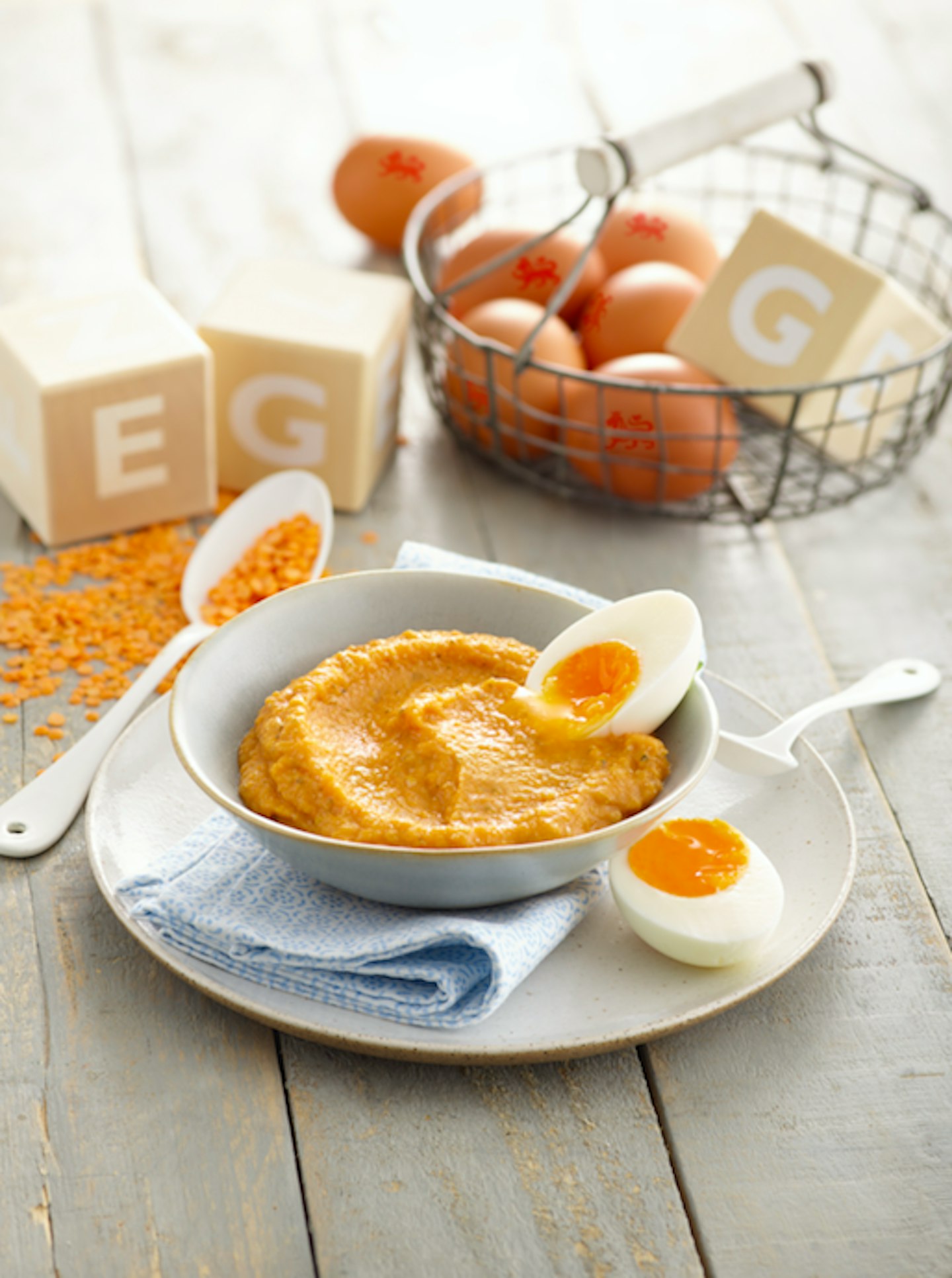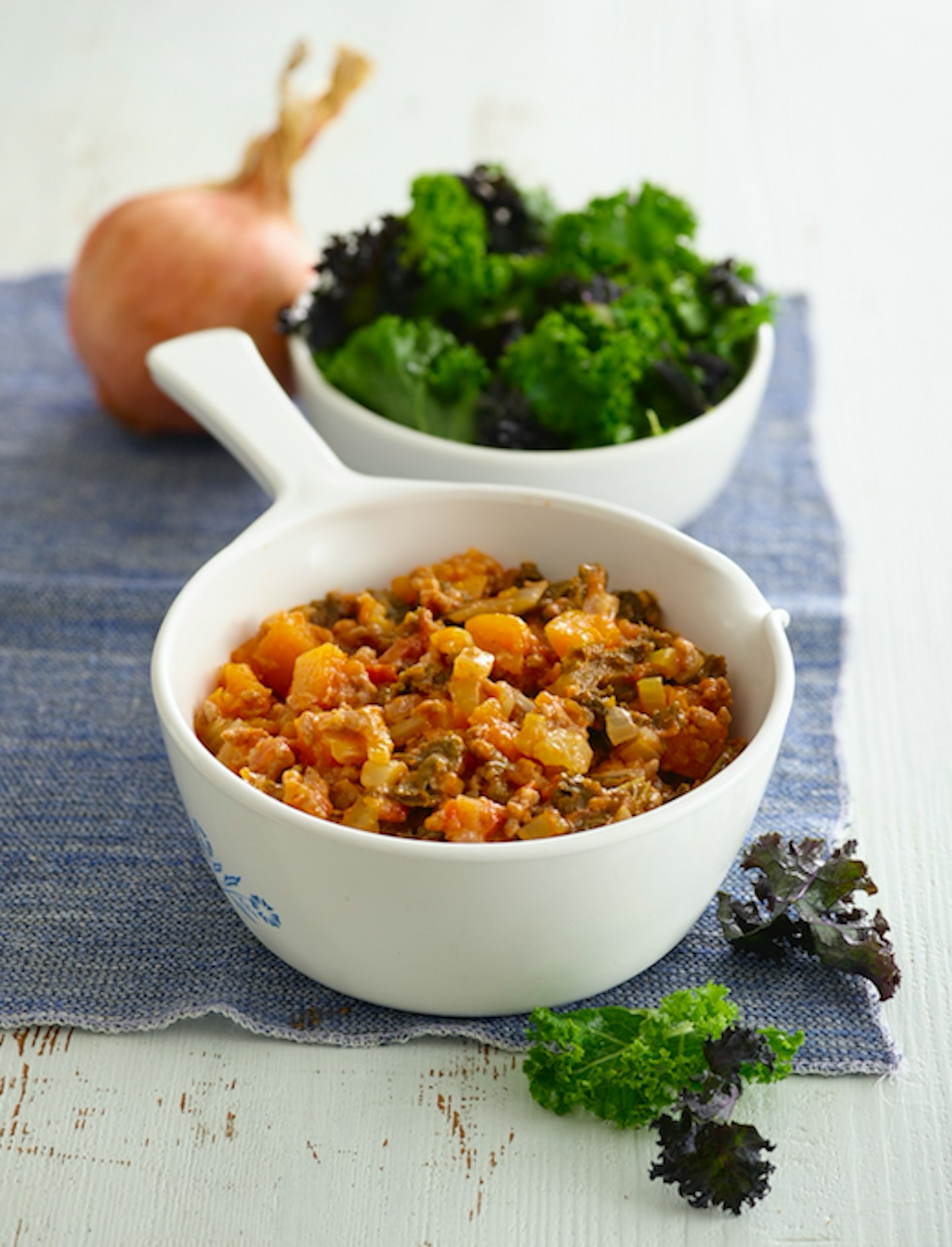It’s only natural to feel a little bit apprehensive about weaning your baby onto solids but the main and most simple way of approaching your baby’s first foods is to try and offer them as much variety as possible from the get-go.
This way you will be on the right track to getting lots of different (and essential) nutrients into their diet to help fuel their development.
Another key factor to consider at mealtimes is to remember that your baby has a tiny tummy, which fills up very quickly.
This means that every mouthful or spoonful they have needs to contain the maximum amount of nutrition (with minimum amount of bulk).
Each meal should contain protein, carbohydrates and fat.

You also need to make sure that their diet includes all-important iron, essential fatty acids, zinc, Vitamin D, C, E, iodine and calcium.
If you are starting to wean your baby at six months, it’s important to introduce foods containing critical nutrients, like iron and essential fatty acids fairly quickly.
Did you know that in their first-year babies triple their birth weight? To grow that much, they need a lot of nutrients - more than at any other time in their life.
My advice would be to offer fruit and vegetables for the first two weeks and then start introducing protein-rich foods like red meat and oily fish such as salmon.

The reason for this is because fruit and vegetables alone are not nutrient-dense enough for your growing baby.
Here I want to take the confusion out of one of your baby’s main building blocks - protein - and provide a list of foods that you should be experimenting with your baby in those early stages.
Protein is an essential nutrient for growth and interestingly is most effectively used when your baby has enough energy from carbohydrates and fats, known as non-protein energy.
Carbohydrates will give your baby the fuel they need to grow and develop and will help to make the best use of the protein-based foods they are consuming.
Good sources of protein for babies include;
-
Oily fish (salmon, mackerel, sardines, anchovies) – try my superfood salmon puree –it not only contains sweet potato, tomatoes and spinach but also protein from the Parmesan cheese and salmon. The salmon also provides an essential portion of omega-3s!
-
Poultry (chicken, turkey)
-
Meat (beef, lamb, pork)
-
Eggs (yolks and whites)
-
Pulses like beans, lentils, chickpeas and soya (including tofu)
-
Milk (your baby can have full fat cow’s milk in cooking from the start of weaning once over 6 months)
-
Yoghurt (full fat)
-
Cheese
-
Nuts (ground or nut butters)
Vegetarian and vegan babies need to have a source of protein with every meal.
It’s needed for the growth and creation of enzymes which help to control a whole host of bodily functions.
Beans and pulses such as lentils and chickpeas are a great addition to your baby’s diet as are nut butters or finely ground nuts added to their puree for example.
Soya products such as tofu is also a good option for adding protein to your little one’s mealtimes.
Other vegetarian sources of protein include eggs, cheese, full fat yoghurt and milk (your baby can have full fat cow’s milk in cooking from the start of weaning once over 6 months).
Here are a couple of my favourite protein-based recipes for your growing tot!
Lovely Lentil and Egg Puree

Beef with Kale and Butternut Squash

And don’t forget to check out my cook-along videos for myMini Meatballs and Baby’s First Chicken Curry over on the M&B YouTube channel which is both full of this essential nutrient.
What recipes do you like to make for your little one? Let us know on Facebook or Twitter!
Now read:
